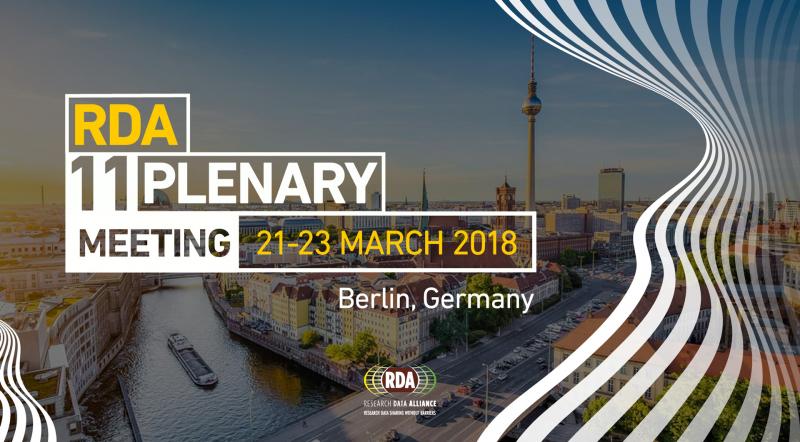
EUDAT, through its Sensitive Data Working Group in the Research Data Alliance (RDA), will be leading a working meeting at the RDA11 Plenary titled, "Sensitive Data for Open Science".
The objectives of the meeting are to present the results of the inventory and evaluation of technologies to the RDA community, and meet and foster connections among professionals interested in exploring techniques to use sensitive data as part of open data sharing across technologies, disciplines and countries.
It also aims to investigate the establishment of a Sensitive Data related RDA WG including the finalization and harmonization with RDA of the creation of a Sensitive Data Memorandum, advance the work of the EUDAT Sensitive Data Group by embedding it into RDA communities for developing and adopting infrastructures for data-sharing and data-driven research with a focus on sensitive data on a global level, and finally, increase the impact of EUDAT efforts by proposing a common memorandum of sensitive data usage to take-up the sensitive data challenge for European data infrastructures.
The event will be chaired by Daan Broeder and Wolfgang Kuchinke and will be held on 22 March 2018 from 15:30-17:00 during the RDA11 Plenary Breakout 6 for WG/IG/BoF Working Meetings.
Agenda
I. Welcome, self-introduction of the audience
II. Introduction: Sensitive Data & Research infrastructures, eInfrastructures
III. Scientific use cases and the goal of the meeting
IV. EUDAT Sensitive Data WG, EOSC-hub sensitive data task and Tryggve Nordic sensitive data Clouds
V. RDA status with respect to sensitive data:
-
RDA/NISO IG
-
FIM-IG
VI. Discussions topics:
-
Is open science compatible with sensitive data?
-
FAIR sensitive data?
-
How does the US situation compare with Europe?
-
What role can RDA take?
-
Networking & discussion platform
-
Collaborate on best practices, harmonise approaches, standardisation
-
Liaise with other ongoing RDA work
-
Global impact of common recommendations
-
VII. Outcomes:
-
Is there room and interest for a Sensitive Data IG or WG
-
If a WG, what should be the goals/products?
Sensitive Data is personal data about a data subject, such as racial or ethnic origin, political opinions, et.; but in particular, it is data about physical or mental health, including genetic records. Sensitive Data is subject to strict data protection in EU law; thus, it is in general forbidden to share it, unless an explicit and unambiguous consent by the data subject is provided, authorizing the use of this data for a certain purpose over a certain period of time.
On the other hand, sensitive data plays an important part in research, and its importance is still growing, because it allows investigations with impact on human health and wellbeing. Therefore, facilities and processes for managing sensitive data should have an important place in research and especially in the cloud data infrastructures that are being built to foster research in Europe.
The EUDAT initiative has established a “Sensitive Data Working Group (WG)” to investigate and discuss different requirements of research communities related to sensitive data, like, for example, the necessary levels of protection, different types of consent, different anonymization procedures, use of isolated, protected work spaces, and levels of identity assurance for user authentication.
The Sensitive Data WG is taking inventory of technologies that could help address data protection requirements of research infrastructures and that are within the scope of EUDAT and other infrastructures offering data management services to research communities. Within the context of organizing this meeting at RDA, EUDAT want to evaluate how these solutions can enable the inclusion of sensitive data in the general RDA Data Fabric of advanced research processes and how RDA Interest Groups can contribute to this extension of data processes.
EUDAT's vision is to have interoperable infrastructures that allow access and analysis of sensitive data together with open data, such as the processing of health data linked together with climate and environmental data. It'is possible, given the right technical support and suitable policies, to open Sensitive Data to Open Science.
For more information as well as details on how to join the meeting or obtain remote access, visit the event's page on RDA.
